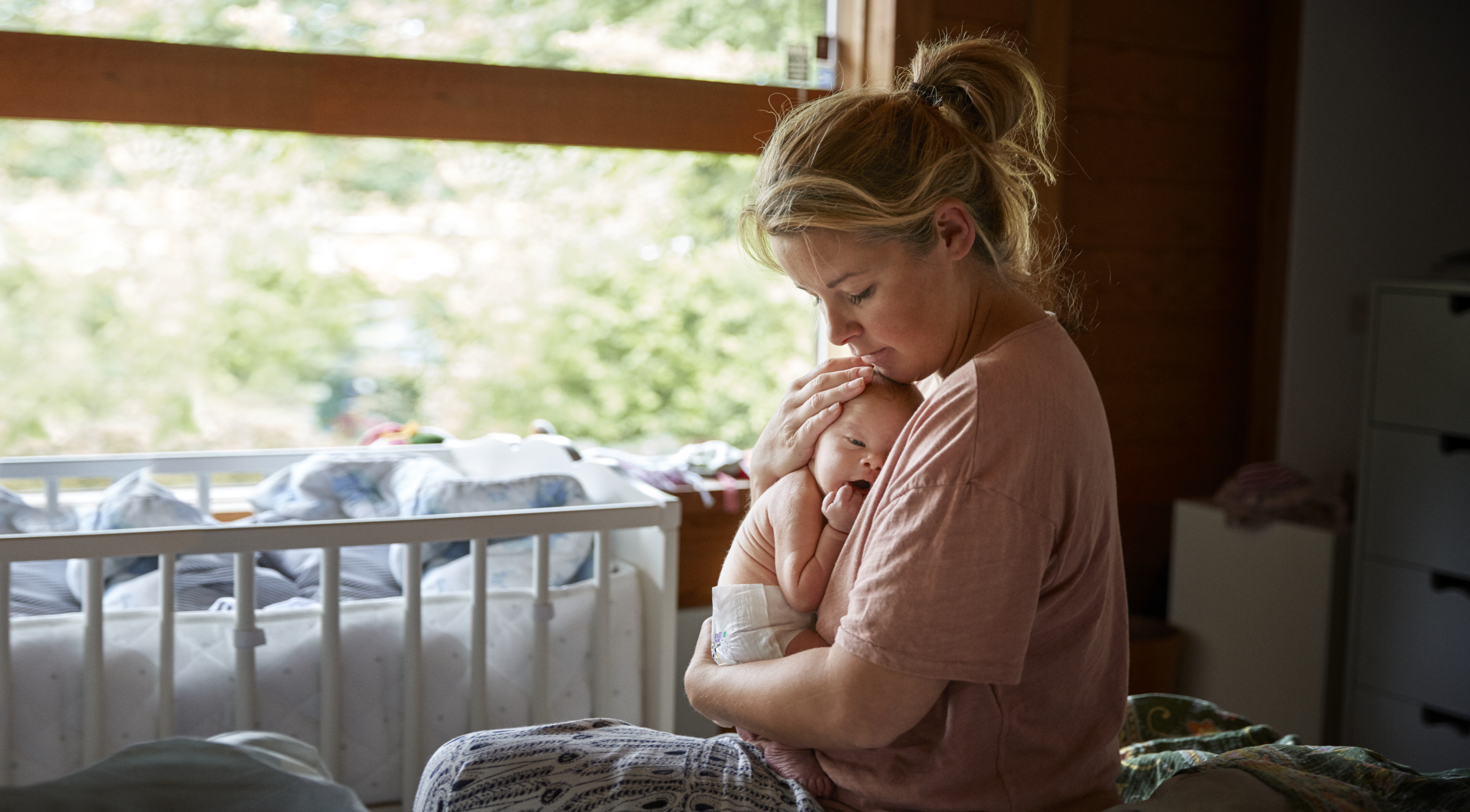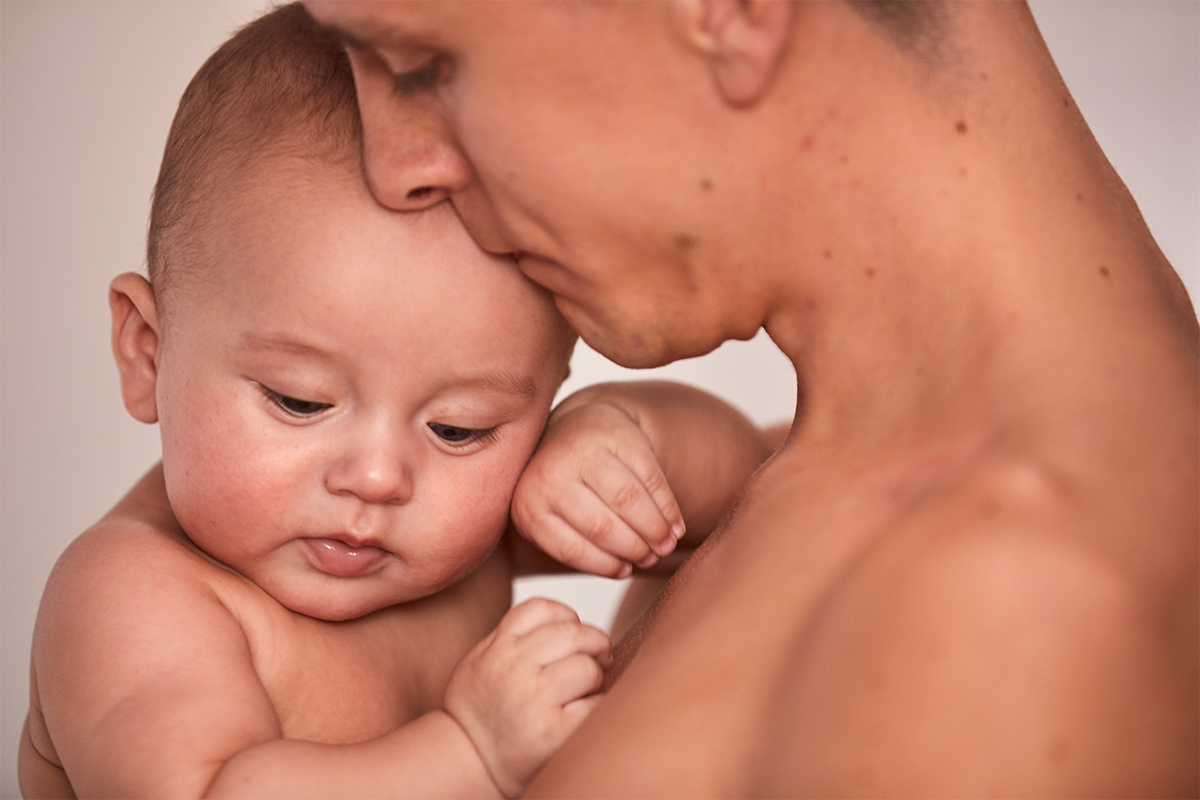
Lochia after childbirth
It is completely normal to experience bleeding after giving birth. This is called lochia and is something that normally disappears by itself when the body heals. But sometimes complications can arise, in which case it is necessary to contact the healthcare service for help.
Regardless of whether the birth has occurred vaginally or by caesarean section, everyone bleeds after childbirth. This postpartum bleeding, called lochia, is due to a wound on the uterine wall when the placenta detaches. As the wound heals and the uterus contracts to its original size, the bleeding (lochia) also decreases. But how long should the bleeding normally last, and how can you tell if something might not be quite right – are there any signs to look out for? Read on to find out more!
How long does postpartum bleeding last?
As already mentioned, everyone experiences bleeding after childbirth, but how long the bleeding (lochia) lasts is something that varies quite a lot from individual to individual, and anything from 2 to 8 weeks is normal. It is also important to know that lochia should start decreasing after only a few days as the uterus starts to decrease in size and the wound starts to heal. If you intend to breastfeed, it may be worth knowing that when your baby sucks on your breast, it helps the uterus to contract and can actually make the bleeding decrease more quickly.
What does lochia look like?
During the first few days, lochia is usually like a really heavy period – red in colour, and often with clots of blood. After a week or so, the lochia changes colour to become a little browner, after which it gradually lightens and then stops completely. It may come in waves to begin with; for example, if you are up and walking, or if you have been lying still and then get up, you may sometimes experience it as almost flowing or coming like a small splash. This type of increased lochia is completely normal and is due to extra blood being circulated when you move, or the pooling of blood while you were lying down. However, if you feel that your lochia has increased for no apparent reason, it is sensible to be a little extra attentive.
If your lochia increases again or starts to smell bad (H3)
Increased bleeding (which is not just temporary due to e.g. movement) may be due to the uterus not contracting as it should, in which case help is often needed in the form of medication. But the fact that your lochia has returned or has become more abundant again could also be due to the existence of remnants of placenta (or the membranes surrounding the placenta) left inside the uterus, in which case you need to contact the healthcare service for help in removing such remnants. Sometimes medication will suffice, but sometimes these remnants may need to be removed by scraping.
It is also good to be aware of how your lochia smells. Admittedly, it is not very easy to use your sense of smell to determine whether your lochia is normal or not, as lochia always has a rather strong odour – but if the odour changes for the worse or smells very bad, you should arrange a check-up to make sure that everything is okay. For example, lochia with a strong foul odour, often in combination with fever and stomach pain, could be a sign of infection in the uterus – in which case it is usually necessary to arrange treatment with antibiotics.
Things to consider during the time you experience lochia after childbirth
While there is still a wound in the uterus that has not fully healed, the risk of infection is greater, and it is therefore a good idea to consider the following during the time you experience lochia:
- Take a shower instead of a bath.
- Use a pad instead of a tampon or menstrual cup. When the lochia starts to calm down, period panties are also a convenient and sustainable alternative.
- It is wise to completely abstain from penetrative sex at the beginning, when the lochia is at its most abundant. If you then want to have sex after that and throughout the time you are still experiencing a little lochia, it is important to use a type of protection (e.g. condom) that prevents bacteria from entering the body.
When is it time to contact the healthcare service?
Postpartum bleeding is completely normal and is something that should happen after childbirth. But sometimes complications can arise, in which case there are some signs that it might be a good idea to contact an emergency gynaecology clinic:
- The bleeding increases a lot again – or does not decrease.
- There is a significant amount of blood and/or clots of blood (for example, if you bleed through a normal-sized pad in an hour).
- You have fever and stomach pain (tender uterus).
- Your lochia has a strong foul odour.
Please note that all information above is based on Swedish recommendations.


